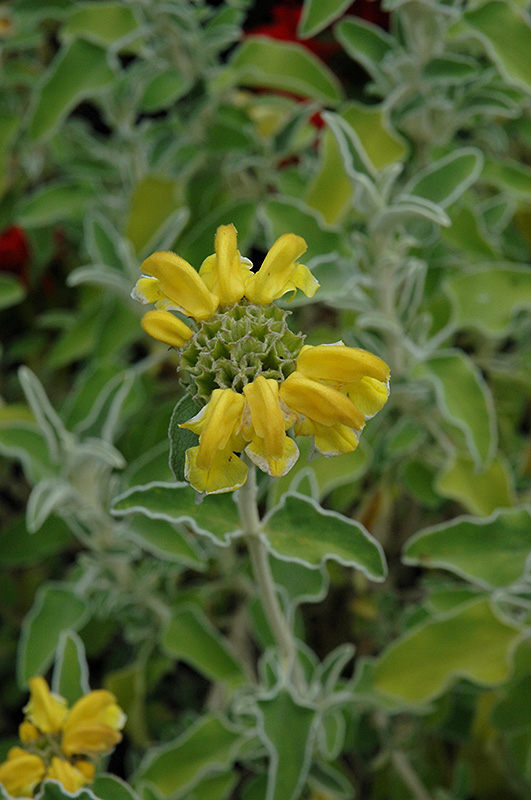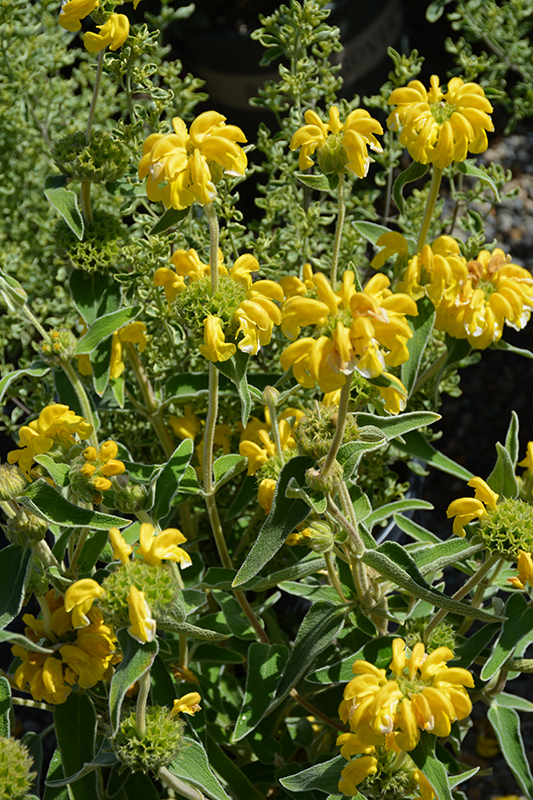>> Home
Plant Height: 3 feet
Flower Height: 4 feet
Spread: 3 feet
Sunlight:
![]()
Hardiness Zone: 6
Description:
An interesting clump forming perennial with dense whorls of bright yellow flowers that rise tall on the stems; silvery gray-green woolly leaves are interesting all season; woody and evergreen in zone 8 to 9, but restarts from the ground in colder climates
Ornamental Features
Jerusalem Sage features bold spikes of yellow hooded flowers rising above the foliage from late spring to early summer. The flowers are excellent for cutting. Its serrated narrow leaves remain grayish green in color throughout the year.
Landscape Attributes
Jerusalem Sage is an herbaceous evergreen perennial with an upright spreading habit of growth. Its medium texture blends into the garden, but can always be balanced by a couple of finer or coarser plants for an effective composition.
This is a relatively low maintenance plant, and is best cut back to the ground in late winter before active growth resumes. Deer don't particularly care for this plant and will usually leave it alone in favor of tastier treats. It has no significant negative characteristics.
Jerusalem Sage is recommended for the following landscape applications;
- Mass Planting
- General Garden Use
Planting & Growing
Jerusalem Sage will grow to be about 3 feet tall at maturity extending to 4 feet tall with the flowers, with a spread of 3 feet. It grows at a medium rate, and under ideal conditions can be expected to live for approximately 10 years. As an evegreen perennial, this plant will typically keep its form and foliage year-round.
This plant should only be grown in full sunlight. It prefers dry to average moisture levels with very well-drained soil, and will often die in standing water. It may require supplemental watering during periods of drought or extended heat. It is not particular as to soil type or pH. It is somewhat tolerant of urban pollution. This species is not originally from North America.

